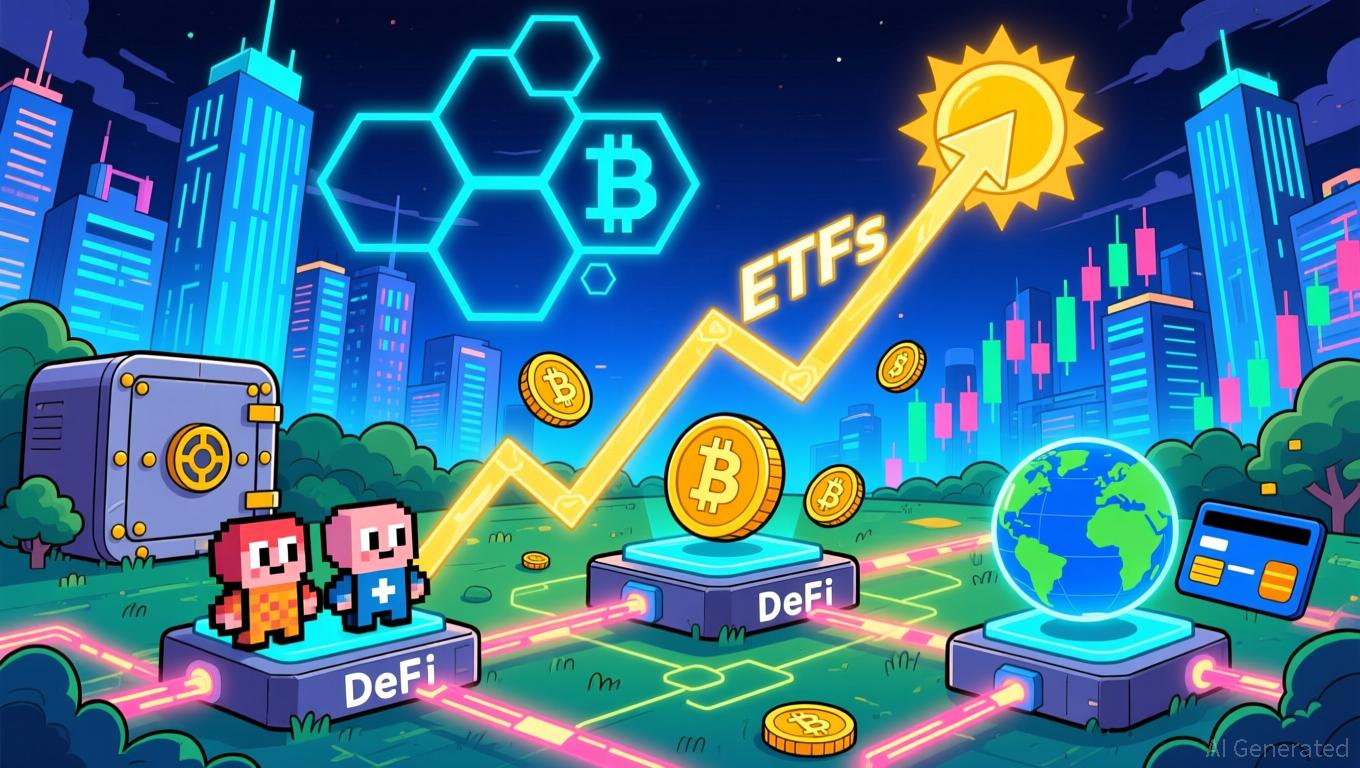Bitcoin Updates: Kiyosaki Trades BTC for Steady Earnings During Crypto Slump, Promises Future Repurchase
- Robert Kiyosaki sold $2.25M in Bitcoin at ~$90,000/coin to fund surgery centers and billboards, aiming for $27,500/month tax-free income by 2026. - The sale occurred amid Bitcoin's 33% drop from $126K peak, with the Crypto Fear & Greed Index hitting a multi-year low of 11. - Kiyosaki insists this is tactical cash flow generation to reaccumulate BTC, maintaining $250K/2026 and $27K/ounce gold price targets. - Market analysts remain divided on Bitcoin's trajectory, with some citing ETF outflows as short-te
Robert Kiyosaki, the well-known author of Rich Dad, Poor Dad and a prominent
This transaction, which Kiyosaki revealed on X and was covered in several reports, comes at a time when Bitcoin is experiencing one of its sharpest declines in recent memory. The price briefly fell below $85,000 earlier in the week, hitting a low of $80,537 before recovering to around $84,000.

Experts remain split on where Bitcoin is headed in the short term. Seasoned trader Peter Brandt anticipates a $200,000 price by the third quarter of 2029, while analysts at Bitfinex suggest that the recent record withdrawals from Bitcoin ETFs are more about short-term trading than any fundamental weakness
Kiyosaki’s actions underscore the balance between holding high-volatility assets for potential long-term rewards and seeking stable income during uncertain markets. His approach has sparked a range of opinions:
Disclaimer: The content of this article solely reflects the author's opinion and does not represent the platform in any capacity. This article is not intended to serve as a reference for making investment decisions.
You may also like
Solana News Today: Altcoin ETFs See Growth While Bitcoin and Ethereum Funds Face $4.2B Outflows in 2025
- Coinbase acquires Vector DEX to expand Solana integration, aiming to become an "everything exchange" with faster trading execution. - Altcoin ETFs (Solana, XRP) attract $632M in inflows, contrasting $4.2B outflows from Bitcoin/Ethereum ETFs amid macroeconomic uncertainty. - Institutional infrastructure advances include GSR's unified trading platform and GoPlus' $5B+ token security API usage, addressing volatility risks. - Market shifts toward diversified assets and institutional-grade tools persist as re

Bitcoin Updates: American Bitcoin Holders Pull Back While Asian Markets Strengthen Amid Changing Crypto Liquidity
- Coinbase's Bitcoin premium index hit -0.0499% on Nov 19, its widest negative level since Q1 2025, reflecting U.S. selling pressure and institutional profit-taking. - U.S. Bitcoin ETFs saw $2.47B in redemptions (63% of total outflows) as prices fell to 7-month lows, contrasting with rising Asian liquidity in spot markets. - Asian markets absorbed BTC inflows while U.S. capital retreated, signaling geographic liquidity reallocation rather than structural demand decline. - Macroeconomic factors including fa
2025's Business Landscape: Strategic Shifts Across Industries Transform Market Dynamics
- 2025's corporate landscape saw GSK transfer £17.995/share treasury stock to employee trusts, reflecting firms using share reserves for talent retention amid tight labor markets. - Formula 1's U.S. sponsorship boom (125 companies in 2025 vs. 44 in 2017) highlighted tech/AI partnerships as innovation-driven sponsorships reshaped the sport's commercial strategy. - Coinbase's acquisition of Solana-based DEX Vector (its 9th 2025 deal) aligned with $1T+ Solana DEX volume growth, signaling crypto exchanges' pus

Solana News Update: Solana ETFs Draw $421 Million Despite Price Drop, Bucking Overall Market Decline
- 21Shares launched a Solana ETF (TSOL) in the U.S., joining Fidelity and Bitwise in driving $421M in inflows despite SOL's 30% price drop. - Institutional interest grows as ETFs highlight Solana's real-world use cases in DeFi and gaming, though technical indicators show bearish momentum. - Regulatory clarity and staking innovations may sustain long-term adoption, but SOL faces critical resistance at $140 amid macroeconomic uncertainties.
